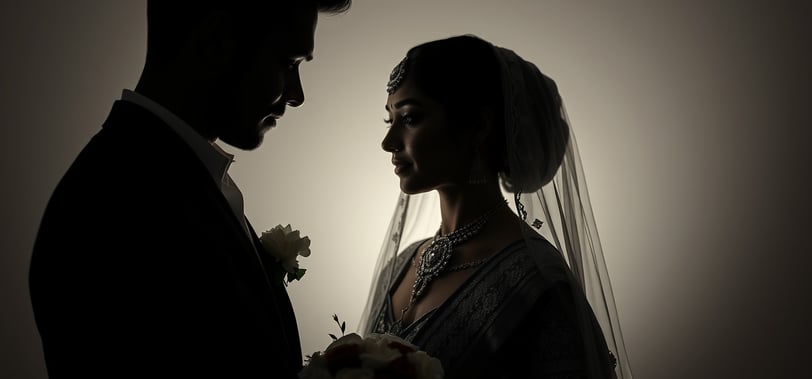How Does Arranged Marriage Work and Why It Still Thrives Today?
Curious about how does arranged marriage work? Learn how this tradition adapts to modern times, balancing family involvement with personal choice for lasting relationships.


I find it intriguing that arranged marriages have remained a significant part of various cultures around the world, rooted in tradition, family values, and societal expectations. But how does arranged marriage work in today’s world? While some may view the concept as outdated, I’ve noticed that arranged marriages are evolving—adapting to modern values and incorporating more personal choice. In this article, I want to take a closer look at the dynamics of arranged marriages, examining their benefits, challenges, and how they continue to function across different cultural landscapes.
Understanding How Arranged Marriage Works in Traditional Societies
Arranged marriages have historically been a way to unite families, strengthen social ties, and ensure compatibility based on shared values and cultural backgrounds. In traditional settings, parents or elders take the lead in selecting a suitable partner for their child. Factors such as religion, caste, financial stability, and reputation often play a significant role in the decision-making process.
While the couple's opinions were not always prioritized in older practices, many cultures now emphasize mutual consent, allowing both individuals to accept or decline the proposed match. The process generally follows these steps:
Matchmaking – Families seek potential matches through community connections, family recommendations, or professional matchmakers.
Background Checks – Families conduct thorough investigations into the background, social status, and character of the prospective spouse.
First Meeting – The couple meets, often in the presence of family members, to assess compatibility and interest.
Engagement – Once both parties agree, a formal engagement takes place, marking the beginning of wedding preparations.
Marriage Ceremony – The couple weds in a culturally significant ceremony, often accompanied by elaborate rituals and celebrations.
How Does Arranged Marriage Work in Modern Times?


In contemporary society, arranged marriages have evolved significantly. Many young individuals today have a greater say in choosing their partner, with parental involvement serving as guidance rather than control. Technological advancements and changing social dynamics have reshaped the traditional approach, making arranged marriages more flexible.
Some modern approaches include:
Online Matrimonial Websites – Platforms like Shaadi.com and BharatMatrimony facilitate arranged marriages by allowing individuals to filter and choose partners based on preferences.
Parental Introductions with Freedom of Choice – Parents introduce potential matches, but the final decision lies with the couple.
Compatibility-Based Matching – Psychological and astrological compatibility assessments help ensure a better match.
The fundamental principles remain the same, but personal choice and consent are now integral to the process.
Benefits of Arranged Marriage
Many people wonder, how does arranged marriage work in fostering long-term relationships? Surprisingly, arranged marriages boast a high success rate, often leading to stable and fulfilling relationships. Here are some benefits:
Strong Family Support System
Since families play a crucial role in the selection process, arranged marriages come with built-in support networks. This involvement fosters a sense of security and guidance, which can be beneficial during marital challenges.Shared Cultural and Religious Values
Arranged marriages often prioritize cultural and religious compatibility, reducing the likelihood of ideological conflicts between partners.Reduced Pressure of Finding a Partner
In cultures where arranged marriages are prevalent, individuals do not face the societal pressure of finding a partner independently. Instead, families help streamline the process, reducing stress and uncertainty.Higher Commitment Levels
Studies suggest that arranged marriages have lower divorce rates compared to love marriages. This could be attributed to the structured approach and the emphasis on long-term compatibility rather than immediate attraction.
Challenges Faced in Arranged Marriages
While arranged marriages offer several advantages, they also present unique challenges. Understanding these issues can help individuals make informed decisions.
Limited Personal Choice
Although modern arranged marriages incorporate individual preferences, some traditional systems still limit personal choice. This can lead to dissatisfaction if either partner feels pressured into the union.Compatibility Concerns
In some cases, partners may struggle with emotional or personality mismatches due to limited courtship periods before marriage.Social Expectations
Cultural and familial expectations can create additional pressure, sometimes leading to difficulties in adjusting to the marriage.
How Does Arranged Marriage Work in Different Cultures?


Arranged marriages are prevalent in many cultures worldwide, each with unique traditions and practices. Here’s how some communities approach them:
India
In India, arranged marriages are deeply embedded in tradition. Families rely on caste, horoscopes, and social status when choosing partners. While traditional methods persist, many Indian youth now engage in modernized arranged marriages with greater autonomy.Middle East
In Middle Eastern cultures, arranged marriages often emphasize family honor and religious compatibility. Prospective spouses and their families meet multiple times before making a final decision.China
Historically, arranged marriages in China were based on social hierarchy and economic stability. Today, matchmaking events and online matrimonial services help young people find partners while still considering family approval.Japan
Traditional Japanese arranged marriages, known as omiai, involve formal meetings between potential partners arranged by matchmakers or family members. While love marriages have become more common, omiai remains a respected practice in some circles.
Tips for a Successful Arranged Marriage
For those considering an arranged marriage, here are some practical tips to ensure a happy and fulfilling relationship:
Communicate Openly
Discuss expectations, values, and personal goals before committing to marriage.Prioritize Compatibility Over Social Status
Focus on emotional and personality compatibility rather than societal expectations.Spend Time Together
If possible, engage in meaningful conversations and activities before marriage to establish a connection.Seek Support When Needed
Relationship counseling or family guidance can be beneficial in adjusting to married life.Respect Each Other’s Differences
Every marriage, arranged or love-based, requires mutual respect and understanding.
Final Thoughts
So, how does arranged marriage work in today’s world? I believe it is no longer a rigid, one-sided practice but rather an evolving tradition that blends familial involvement with personal choice. While arranged marriages may not be for everyone, they continue to serve as a successful means of building long-lasting relationships in many cultures. Whether approached traditionally or through a modern lens, I think the key to a happy arranged marriage lies in mutual understanding, open communication, and shared values.
